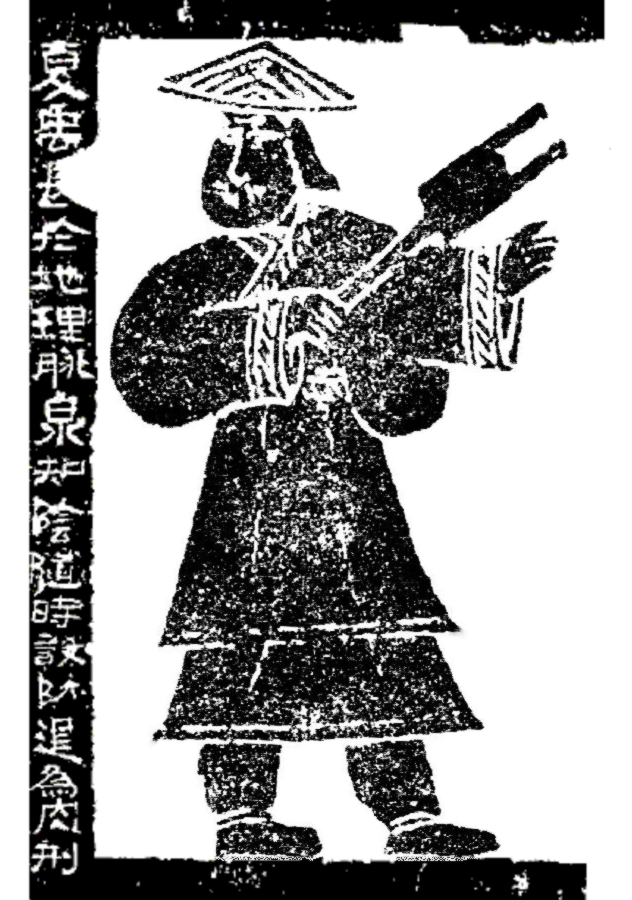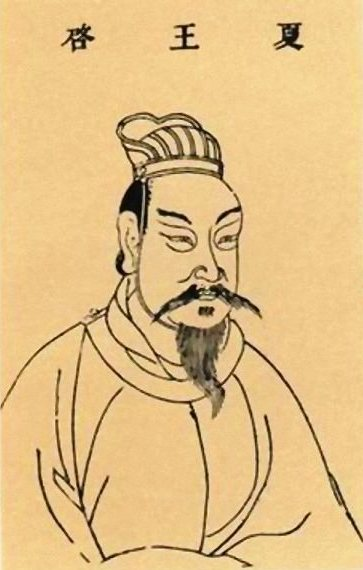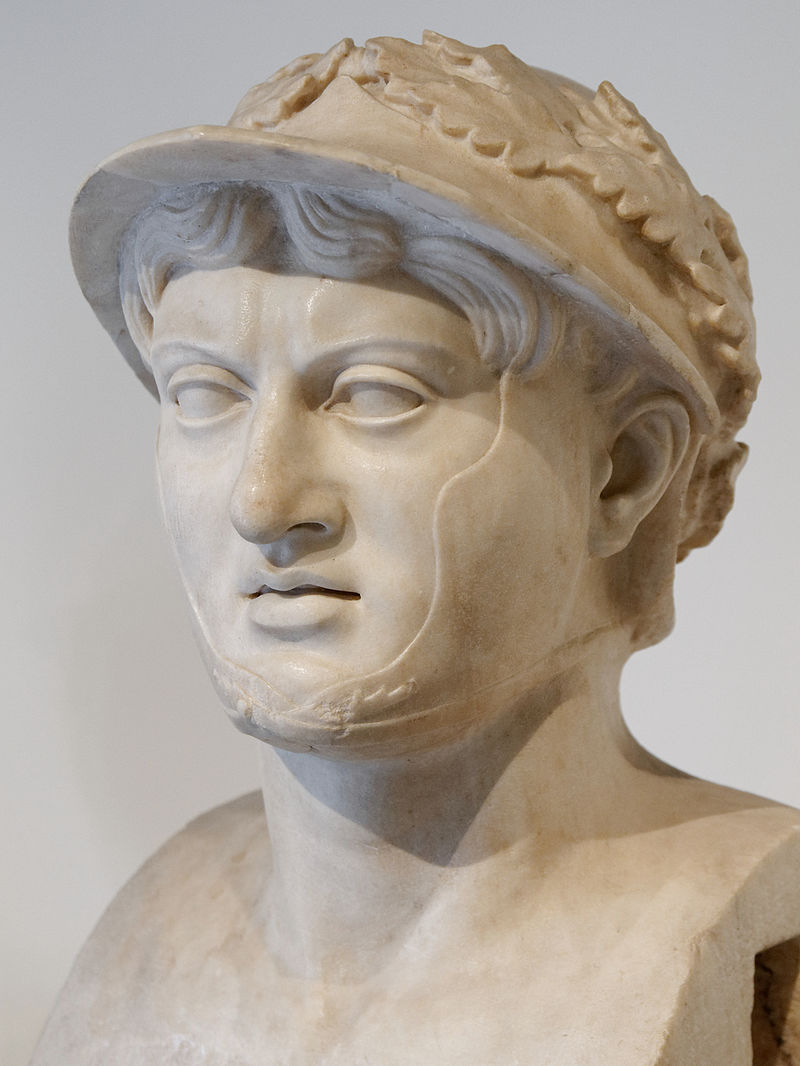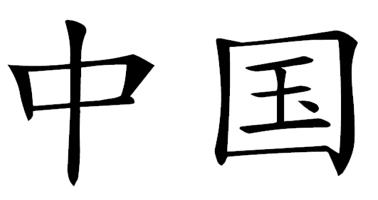The Instructive Hero
I can't say anything with complete certainty, but many, if not all, great nations and societies have some form of instructive hero to teach their children basic moral and political lessons. For the Roman Empire, there was Aeneas; for the modern religious west, there is Jesus Christ; for modern China, there is Léi Fēng. The first two are likely familiar to anyone who was born in the west and has received formal classical education, while the latter is almost certainly unfamiliar. Before I explain who Léi Fēng is, I want to discuss the importance of instructive heroes for societies generally. This wont be a full philosophical treatise on the necessity of moral and political education for a healthy society, and the topic itself will be revisited time and again over the course of my writing.
In the most general terms, a society is only as strong as its body politic. When considering the health of a society, one of the key indicators of societal sickness is political disengagement by the citizens. I use citizens here to refer specifically to that class of people within a society that have the ability to determine the outcome of events on a local or national level - so for the Romans, this would have originally only encompassed the elite aristocratic caste and eventually included the plebeians, while for America it originally only encompassed white property and horse owning people and has come to encompass all people who are over the age of eighteen and fit the current requirements for citizenship. In a society like modern China, the group of people that actually have a say in the national or local governance is substantially smaller, as a percentage of total population, than either of these two societies once they loosened their citizenship requirements. I will go ahead and respond to any complaints about historicity when describing the foundational myths of America and the Roman Empire by asking you to bear with me - what I miss in historical substance I will try to make up for with moral and political teaching.
Pietas
The picture above would stir the heart of any good Roman citizen. Pictured is Aeneas, fleeing the forsaken city of Troy after the Danaan forces had overrun the interior thanks to the cunning of Odysseus. On his back he carries his father and the household god, and he holds the hand of his young son. Aeneas, through many trials and tribulations, would go on to settle the land that would eventually come to be known as Rome, having been established by Aeneas' descendant Romulus. Aeneas typified the perfect proto-Roman: he was concerned with the well-being of his family, his state, and his gods.
There is a Roman concept that encompasses this mentality - pietas. This word is badly translated into English in almost all of its forms, but can be understood when seeing a few of the possibilities together: filial piety, duty, religiosity, devotion. Aeneas so fully encompassed these virtues that he is very frequently referred to as Pius Aeneas. This is not an accident, as the book where Aeneas is described (aptly named the Aeneid) was written far after the events described would have taken place by a man named Virgil. Virgil was hired by Emperor Augustus to write the work, both in order to establish the legitimacy of his family as rulers and to mythologize the essential Roman virtues in a foundational character. When children were too young to understand why they ought to be good rather than bad in their daily life, they were already hearing the stories of Aeneas saving his family and household gods from the destruction of Troy.
Good Romans were expected to conduct themselves according to pietas, and the story of Aeneas only served to further this behavior. Three spheres of Roman life are encapsulated in this one word: the family, the state, and the gods. For those uninitiated in the mystical history of Rome, this is a good way to begin understanding them from a moral standpoint. Familial piety was prized highly, as was the duty one has to the state, both in terms of civilian respect for governance and military service.
Xiào
Pietas can be connected to the Confucian virtue xiào (孝). Xiào, in essence, can be understood as the Confucian virtue of filial piety. For a better understanding of this particular virtue, I'll quote a bit from an English translation of a famous, old Confucian text called Èrshísì Xiào (literally, twenty-four filial piety, but translated more poetically as the Twenty-four Exemplars of Filial Piety). In the text, twenty-four short stories are given to establish the conduct expected of a child with regards to their parents. I've selected one in particular - a story about a boy stealing oranges - for good reason: it highlights some cultural differences between Chinese and Western (Christian) understandings of morality pretty well. The following is a translation of the text cribbed from this link.
Stealing Oranges To Take Home For His Mother: Lu JiIn the Later Han Period, a young boy of only six years old showed a deep filial regard for his mother. He traveled with his father to visit the Chief Minister of Nan Yang, named Yuan Shu. Elder Yuan Shu saw how precocious the young boy was, and ordered his butler to bring a dish of oranges to offer to young Lu Ji. The boy saw the delicious, large fruit, and immediately ate two . He waited until nobody was looking, and secreted three oranges away in the sleeve of his robe. When it was time to say good-bye, along with his father, little Lu Ji raised his hands up in salute. Unexpectedly, the three oranges came rolling out, and fell to the floor in front of Lu Ji.Yuan Shu saw the oranges and laughed: "Little Brother, you're my guest today. How come you stole your host's oranges?" The little boy replied, "Pardon me, my mother likes oranges best of all. Because we don't have any money, it's hard to provide oranges for her. Today I enjoyed two of these ripe, sweet, oranges, and I could not resist taking a few of them back for Mother. She likes them so much."Minister Yuan Shu was impressed by the six-year-old's concern for his mother's happiness. He told his staff to give the entire plate of fruit to Lu Ji for his family.A verse in his honor says:Filial love and brotherhood made nature "Heaven-True",Most rare in a boy just six years old.He hid three oranges in his sleeve, as a gift for his Mom,Just a token to repay her kindness without end.
If you grew up in the west and lived with the unavoidable influence of Christian moral teaching (it's still there in predominately atheist societies, whether you believe it or not) then this story might be striking in its seeming non-judgement on the act of thievery. While it was noted and joked about by the minister, once he learned that the young boy meant to bring the oranges to his mother all was forgiven - in fact, he was rewarded for this act. If you're interested in understanding filial piety, the Èrshísì Xiào is a great place to start.
The focus on xiào here was twofold: I enjoy highlighting the similarities and the differences between cultures, and I think xiào does a fairly good job at this for westerners. The further connection between pietas and xiào can be had in the extension of the familial piety (which is, as stated, the generally accepted English translation of xiào) to the state. In the Xiaojing, or the Classic of Filial Piety, of Confucius, the connection between filial piety and piety to the ruler is made explicitly clear.
"As they serve their fathers, so they serve their mothers, and they love them equally. As they serve their fathers, so they serve their rulers, and they reverence them equally. Hence love is what is chiefly rendered to the mother, and reverence is what is chiefly rendered to the ruler, while both of these things are given to the father. Therefore when they serve their ruler with filial piety, they are loyal; when they serve their superiors with reverence, they are obedient. Not failing in this loyalty and obedience in serving those above them, they are then able to preserve their emoluments and positions, and to maintain their sacrifices. This is the filial piety of inferior officers.It is said in the Book of Poetry: Rising early and going to sleep late, Do not disgrace those who gave you birth."
Here's a link to a translation of that text that can be accessed alongside the traditional Chinese. As one can see, there's a definite through-line between these two separate old-world concepts of pietas and xiào.
Stories as Morality for Children
Throughout all of history and in all places, children have been raised to act properly through stories. In ancient and modern China, stories describing xiào are still known widely among the general population. In America, where a majority of the population identifies as Christian, the parables of Christ are taught and known widely among virtually everyone. The degree to which the stories are studied in a scholarly setting is an interesting datapoint to consider, but the fact of the diffusion of such stories among the population is undeniable.
Children have historically been believed to be incapable of moral judgement or reason more generally. Aristotle goes so far as to frequently name the two populations most incapable of moral judgement or action as children and brutes. This idea, popular in many cultures throughout the world, might be totally wrong (see this 2009 study on how children appear to consider intention when judging the morality of actions), influences the way that people have raised their children throughout all of recorded history. Often, believing children incapable of understanding "simple" concepts such as right and wrong, stories are told to ingrain the moral lessons a society believes necessary for their continued success. This, when implemented across a population, gives a shared understanding of morality that allows a shared understanding of how to exist within the world. In turn, this shared understanding of how to exist in the world promotes unity and stability among the people of a given place, region, or country. If all children of a place are taught the same virtues - be it pietas, xiào, or Christian goodness - you will ensure that an entire generation looks at the world through a similar lens.
Children have historically been believed to be incapable of moral judgement or reason more generally. Aristotle goes so far as to frequently name the two populations most incapable of moral judgement or action as children and brutes. This idea, popular in many cultures throughout the world, might be totally wrong (see this 2009 study on how children appear to consider intention when judging the morality of actions), influences the way that people have raised their children throughout all of recorded history. Often, believing children incapable of understanding "simple" concepts such as right and wrong, stories are told to ingrain the moral lessons a society believes necessary for their continued success. This, when implemented across a population, gives a shared understanding of morality that allows a shared understanding of how to exist within the world. In turn, this shared understanding of how to exist in the world promotes unity and stability among the people of a given place, region, or country. If all children of a place are taught the same virtues - be it pietas, xiào, or Christian goodness - you will ensure that an entire generation looks at the world through a similar lens.
Léi Fēng
The above poster can be translated like this (thanks, partner): "Learn from Léi Fēng, the good role model - study hard the Marx-Leninism and Mao Thought." Now, we will talk about who Léi Fēng was and why he's both cool to know about and can be used as a lens to understand a particular period of Chinese thinking. We will first talk about what place he has in modern China from the perspective of a child living in the People's Republic of China.
If you're a young person in China, you learn about Léi Fēng in Chinese class. He is always referred to as a real, historical figure. Born on December 18, 1940 in Wangcheng (the old capital of the Eastern Zhou Dynasty), Léi Fēng had one of the worst early childhoods imaginable. According to a documentary put together for the state-owned and state-run China Network Television, Léi Fēng lost all of his family in ways that set him up to be the perfect Communist Party of China posterboy. His father, was killed by invading Japanese when Léi Fēng was only five, his older brother died because of child labor exploitation, and his mother committed suicide after being dishonored by a landlord.
Léi Fēng, perhaps spurred forward by the wrongs committed to his family by landlords, corrupt business owners, and the Japanese, joined up with a communist youth corps at a very young age. He would later join the People's Liberation Army at twenty, and only two years later he would die in an unfortunate accident where he was crushed by a pole.
All told, Léi Fēng didn't live very long or, until after his death, have any fame to speak of. The account of his life that is given to us comes directly from the Communist Party of China, then under the august eye of Mao Zedong, and most of what we know of his personal thoughts were transmitted to us by Lin Biao, a man pivotal to the PRC's victory over the previous government of China. Lin Biao began what can be reasonably thought of as a propaganda campaign a year after the supposed death of Léi Fēng, where excerpts of Léi Fēng's diary were presented to the people in leaflets, posters, and official radio broadcasts. I'll provide some examples directly from the Communist Party of China to give you a sense of the lessons to be learned from Léi Fēng's service:
People who are too arrogant are ignorant. He doesn't know his real capabilities. He doesn't realize he is only one drop in the ocean.
If you only have the people and not yourself in your heart, you will achieve honor and prestige.
I feel that a revolutionary should put the revolution's interest first. Contribute his all for the party's enterprise. It is the happiest thing.
If you were one drop of water, do you moisten the field? If you were a ray of sunshine, do you brighten the darkness...
Plainly, this orphaned child turned revolutionary was, along with being a devoted believer in Mao Thought and the mission of the party, quite the poetical soul. One might rightly suspect that the historicity of Léi Fēng is doubted by many - but it is worth noting that officially, Léi Fēng is recognized as a historical figure by the Communist Party of China and is taught as such to children in schools. In fact, the importance of Léi Fēng is further enshrined by the national holiday Xué Léi Fēng Rì (Learn From Léi Fēng Day), where schools and groups across China take part in community service in the style that the folk hero was supposed to have done. It should be noted that recently, interest in Léi Fēng has diminished and skepticism about him has grown, though mostly in the chorus of those already critical of the Communist Party of China.
Concluding Remarks
Léi Fēng is a tool to instruct the populace how to behave rightly, as Aeneas was for the Roman Empire. Not unlike Aeneas, the person of Léi Fēng is debatable, and the figures have both been propagated by a ruling class looking to instill virtues favorable to themselves and the smooth running of society under their control. The lessons of Léi Fēng are a sort of extreme filial piety, taken not as merely for the parents themselves but to the entire society as one. The individual is not to be counted above the collective, and the good citizen in China is to be almost stripped of identity sans party.
I wanted to write this partly to introduce the west to Léi Fēng as a folk hero of modern China, and partly to wonder out loud whether the west finds itself lacking the same sort of cultural touchstone in modernity. Who do we learn about in primary education - barring Christ for Christians - that instills a sense of moral uprightness or correct political behavior? I don't want it to appear that I am suggesting we need to begin religious education in schools - in fact, I think that would be damaging at this time - but rather to suggest a need for western society to examine its education of children. We largely lack instructive heroes in modernity, which many may find to be a good thing.
I can imagine people scoffing at this article, existing in their post-modern and post-structuralist academic worlds, and stating that we need no heroes. Instead, they might suggest, we should examine the evil and wrong that our societies in the west have committed, and teach our children never to commit the same atrocities again. They might say further that western society is not worth saving, and that any attempts to solidify or unify a western world is anathema to post-modern good and evil (good being the other, evil being us). To them I say only this: while the west actively and happily pulls itself limb from limb like some leviathan turned mad, the illiberal world is unifying itself in opposition to us. Before you blindly accept that the illiberal world is consummately better for merely being other, examine their societies. Examine what they value - for example, the ablation of the individual and the creation of the hive-mind - and weigh it against the taught virtues of western society. Look at the intention and the actions taken by the west, not merely the acts deemed (or actually) horrible. For some, this is an impossible calculus, and those people are likely destined to intellectual destruction regardless of anything they might read.
















